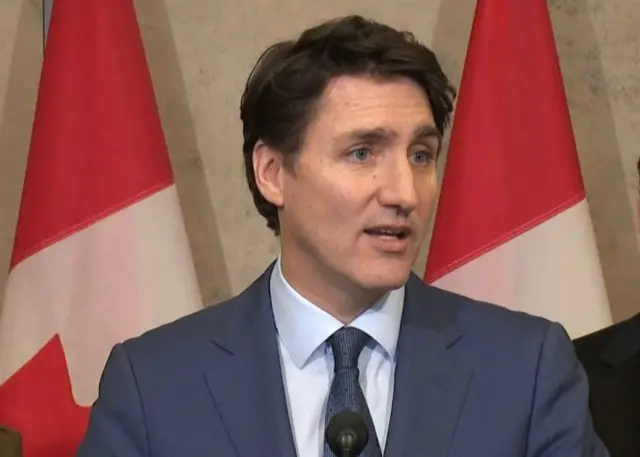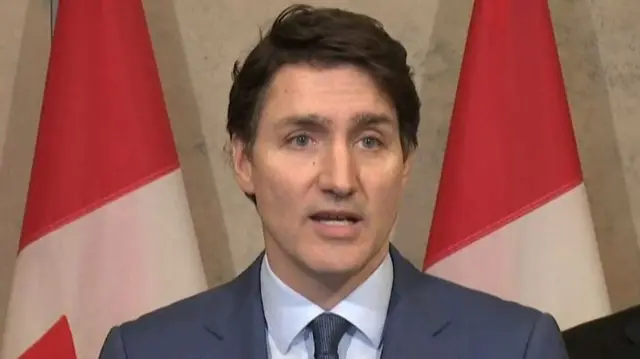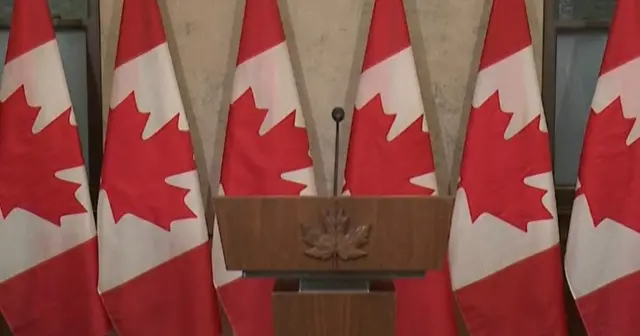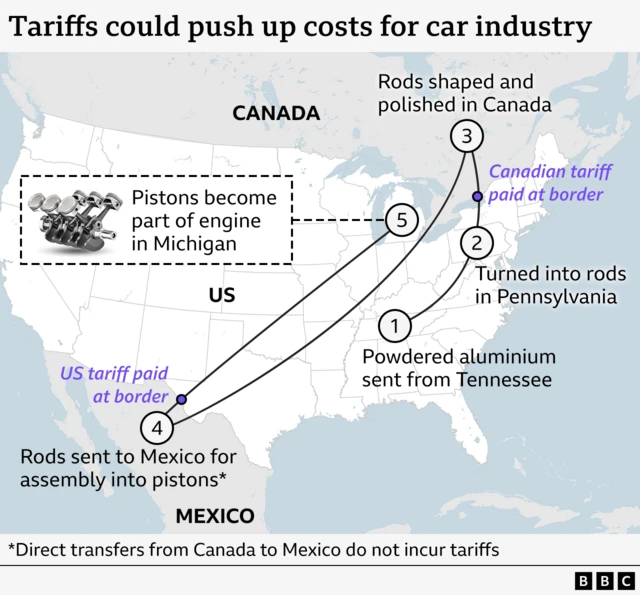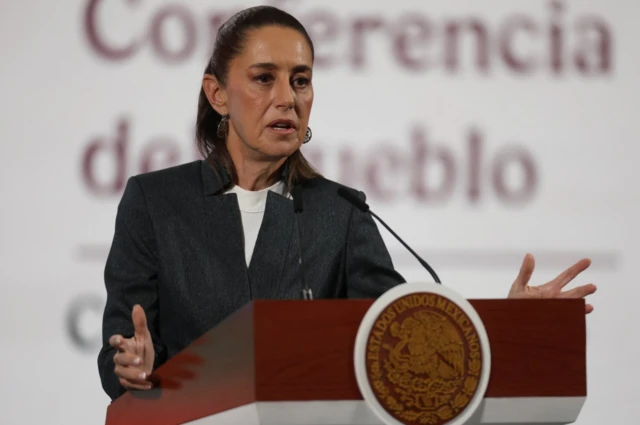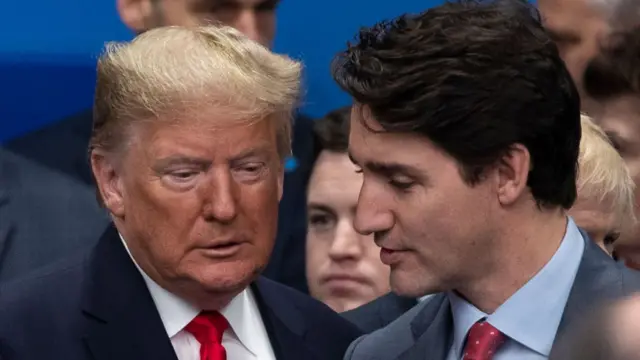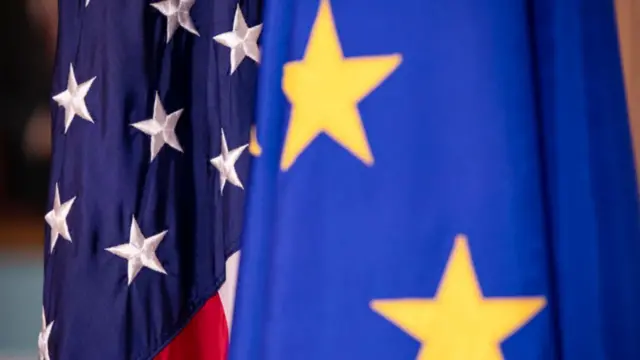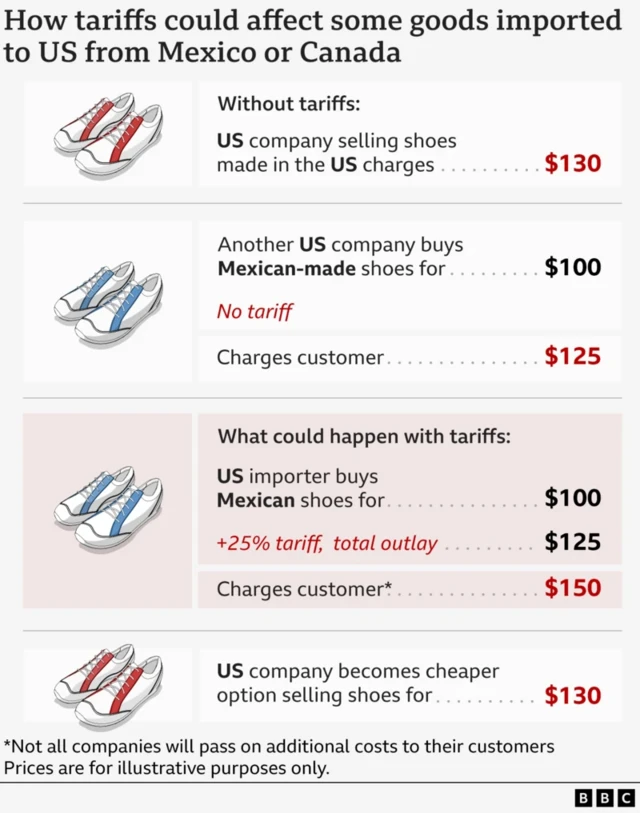'We don't want this', Trudeau tells American publicpublished at 16:19 GMT 4 March
Trudeau now takes a moment to speak directly to the American public.
"We don't want this," the Canadian prime minister tells them, "but your government has chosen to do this to you."
He adds that markets are down this morning, and warns Americans that inflation will rise in the US.
Trudeau also accuses Trump of choosing to put American jobs at risk at "thousands of workplaces" that succeed because of materials or consumers from Canada.
